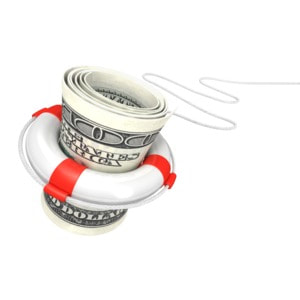 Saving money doesn't just happen. You have to plan for it and be intentional about it. If you find that you consistently don't have money left over at the end of the month, then make a deliberate effort toward savings planning. First, start by assessing your current financial situation, then develop an effective and consistent strategy. Here are five tips to get you started. 1. Adjust Your Temperature Take a look at your winter and summer thermostat settings. Can you turn the heat down even one or two degrees in the winter and up one or two degrees in the summer and still be comfortable? According to the Department of Energy, minor thermostat adjustments can reduce your spending on energy by up to 10% annually. 2. Get Grocery Deals Groceries are expensive, and it seems like we are shopping more frequently during the pandemic. So, how can we save money on our favorite foods at the grocery store? Try using the stores' weekly ads and creating meals around what's on sale. Compare prices at different stores to see which one has the best deals that week. For non-perishable bulk foods, the "big box" stores often have more value for the money. You'll soon find that the more attention you pay to your grocery shopping, the healthier your food choices become. 3. Buy Off-Season After major holidays, many stores have significant savings. If you have room to store them without creating clutter, buy holiday decorations for the next year. You can find significant savings on clothing as the seasons change. The money you save by shopping off-season can be transferred into your savings account. 4. Budget for Your Savings Make a separate line item or budget category for your savings like a regular monthly expense. Consistently depositing money into your savings will leave less room for unnecessary spending and will get you closer to your savings goals. Determine a specific amount that you can save each pay period, week, or month and make it a "payment" to your savings account just as you would any other "bill." 5. Track and Trim Your Spending What are some of the biggest budget busters that are keeping you from saving as much as you can--fast food, streaming services? Have you ever tracked how much you spend on some of these non-essential items? Tracking can be a wake-up call into our spending habits and encourage us to make different choices and some changes. Cutting back on unnecessary spending will help you boost your savings account. No matter which of these savings tips you initiate, it will only be effective if you commit to your savings plan and follow through consistently every week and month. Saving $50 on groceries is great, but you have to put that $50 into savings. Well-planned and consistent savings will create a good habit of money management, building your savings, and lead you on your way to a stable financial future. Comments are closed.
|
Kathy T. EvansCertified Personal Finance Instructor and Consultant Archives
December 2023
Categories
All
|

 RSS Feed
RSS Feed